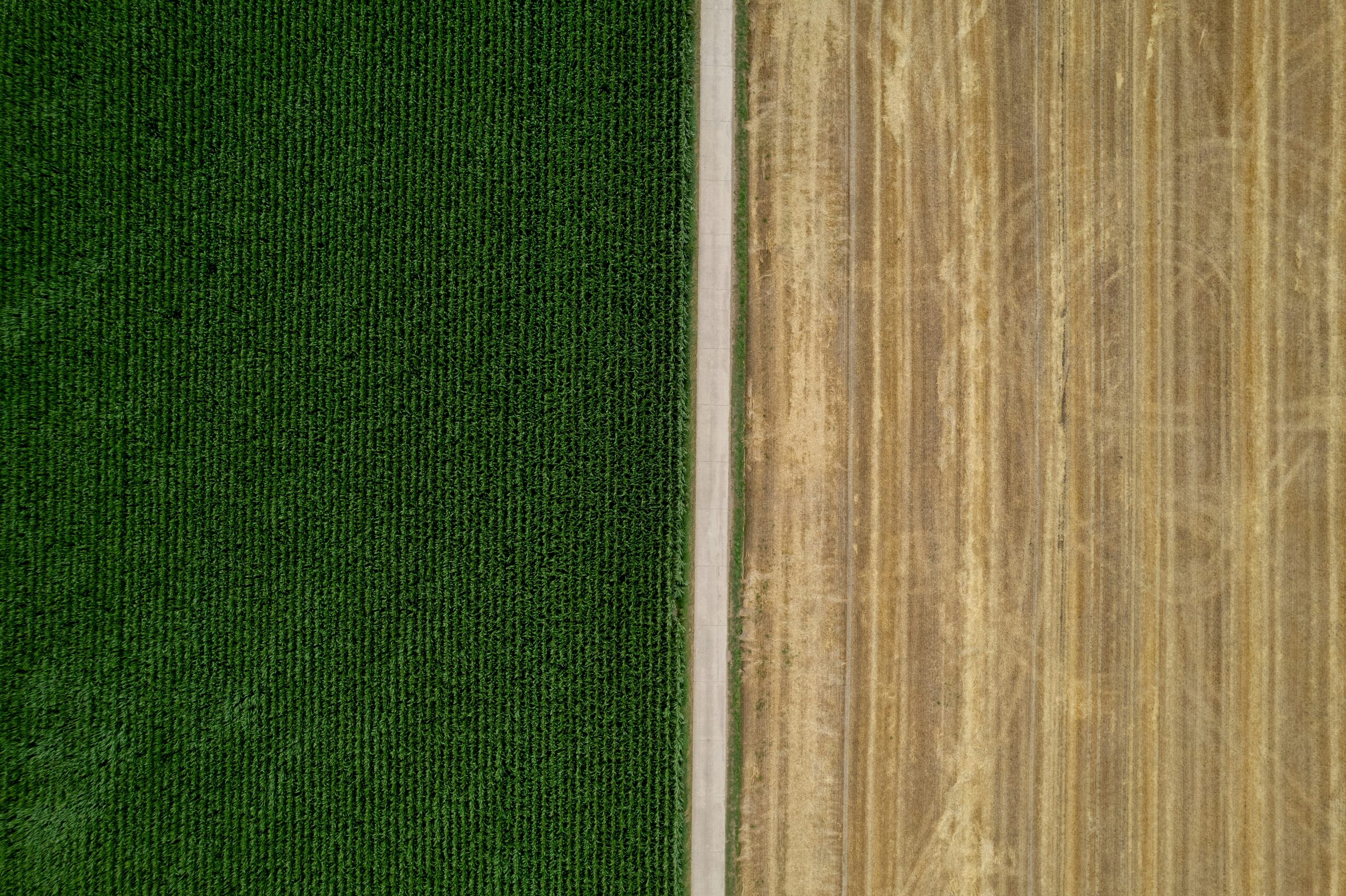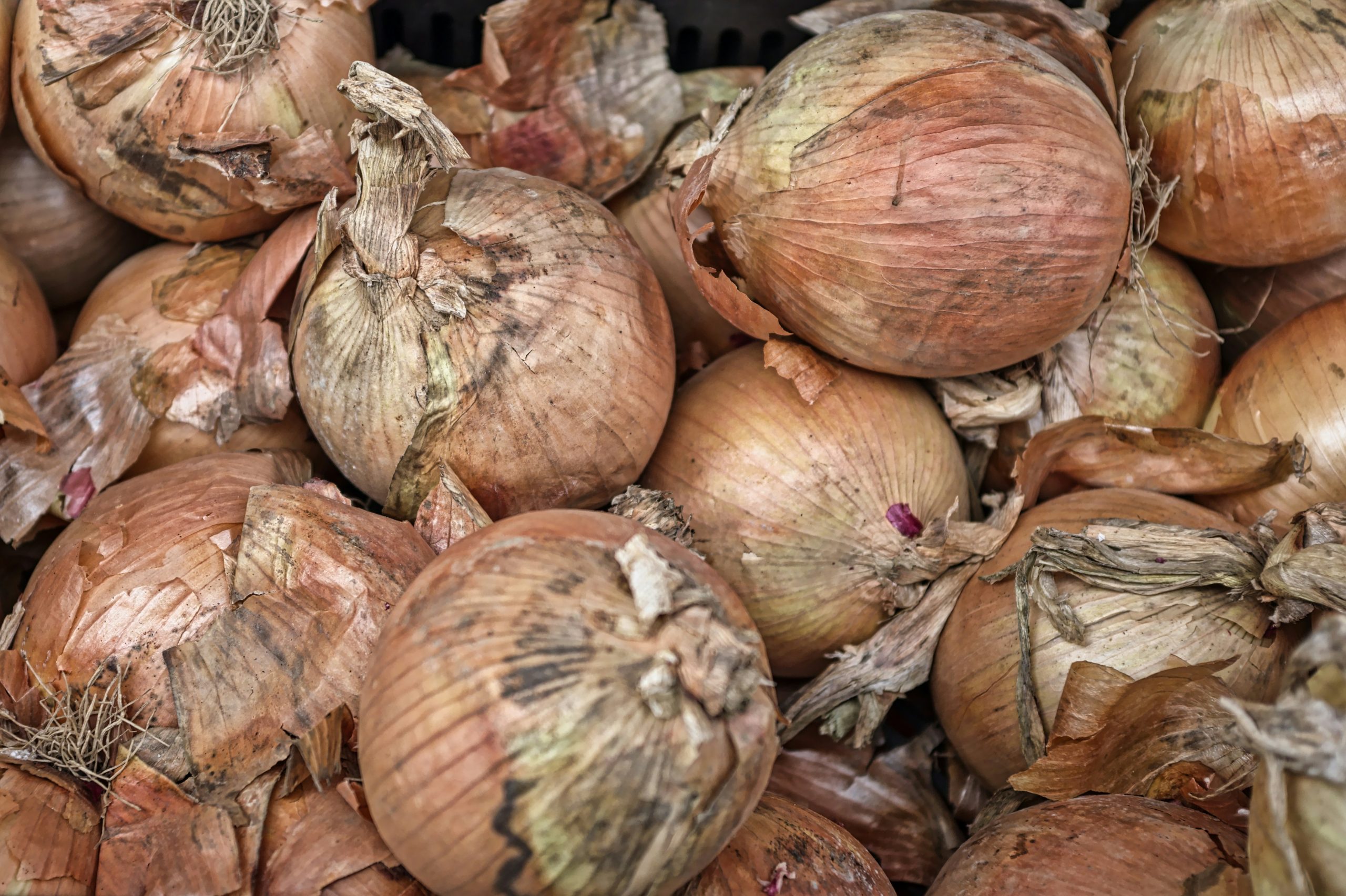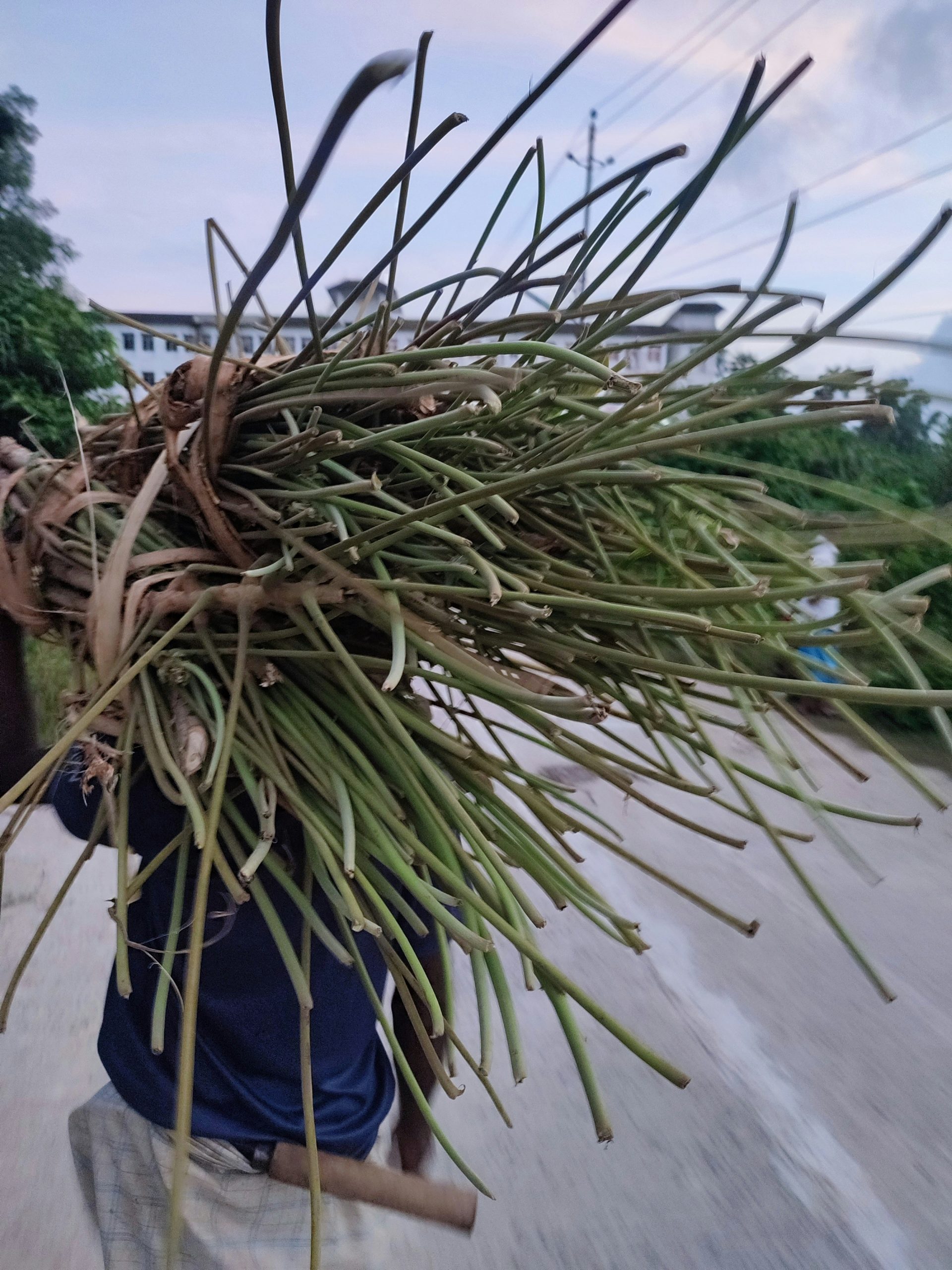Can organic food production be sustainable? This is a question that many of us have pondered as we seek to make healthier and more environmentally-friendly choices. As we explore this topic, we will delve into various aspects of organic farming, including its principles, benefits, challenges, and potential solutions. By understanding these elements, we can better assess whether organic food production offers a viable path toward sustainable agriculture.

What is Organic Food Production?
Organic food production is a holistic agricultural practice focused on producing food in ways that are harmonious with nature. It prioritizes the health of the soil, ecosystems, and people. The methods used in organic farming rely on ecological processes, biodiversity, and cycles adapted to local conditions rather than the use of synthetic inputs such as pesticides, herbicides, and fertilizers.
Principles of Organic Farming
Organic farming is guided by a set of principles that emphasize sustainability, health, fairness, and care. These principles help ensure that organic food is produced in ways that protect and enhance the environment while providing nutritious food for consumers.
- Health: Emphasizes the interconnectedness of human, animal, plant, and soil health.
- Ecology: Works with natural ecosystems and cycles.
- Fairness: Ensures fairness and equity for all stakeholders.
- Care: Advocates for precautionary and responsible management practices.
By adhering to these principles, organic farmers aim to create a sustainable farming system that benefits everyone involved, from the farmer to the consumer.
Methods Used in Organic Farming
To achieve sustainability, organic farmers employ various methods that help maintain soil fertility, manage pests, and promote biodiversity. These methods include:
- Crop Rotation: Alternating the types of crops grown in each field to prevent pest buildup and maintain soil health.
- Composting: Using organic materials like plant residues and animal manure to enrich the soil with nutrients.
- Biological Pest Control: Utilizing natural predators and beneficial insects to control pest populations.
- Cover Cropping: Planting cover crops to protect the soil, suppress weeds, and fix nitrogen levels.
Benefits of Organic Food Production
There are numerous benefits associated with organic food production. These advantages span environmental, health, and social factors, making organic farming an attractive option for many.
Environmental Benefits
Organic farming practices aim to work in harmony with the environment, helping to preserve natural resources and promote biodiversity. Some of the key environmental benefits include:
- Reduced Chemical Use: By avoiding synthetic pesticides and fertilizers, organic farming minimizes harmful chemical runoff and pollution.
- Soil Health Improvement: Techniques like composting and cover cropping enhance soil structure, increasing its fertility and ability to retain water.
- Biodiversity Conservation: Organic farms often support higher biodiversity, providing habitats for various species of plants, animals, and insects.
- Lower Carbon Footprint: Organic farming generally requires less energy and reduces greenhouse gas emissions compared to conventional agriculture.
Health Benefits
Organic food is associated with various health benefits, both for consumers and farmers. These benefits stem from the reduced use of synthetic chemicals and a focus on nutrient-rich soil.
- Nutrient-Rich Produce: Many studies suggest that organic produce tends to have higher levels of certain nutrients, including vitamins, minerals, and antioxidants.
- Reduced Pesticide Residues: Organic food typically contains fewer pesticide residues, reducing the consumer’s exposure to potentially harmful chemicals.
- Farmer Health: Without the need to handle synthetic chemicals, organic farmers face fewer health risks related to pesticide exposure.
Social and Economic Benefits
In addition to environmental and health advantages, organic farming can also bring social and economic benefits to communities.
- Rural Development: Organic farming can create job opportunities and stimulate economic growth in rural areas.
- Fair Trade Practices: Many organic farms also adhere to fair trade principles, ensuring fair wages and working conditions for their workers.
- Consumer Choice: Offering organic products provides consumers with more choices to align with their values and health preferences.
Challenges Facing Organic Food Production
While there are many benefits to organic food production, it is not without its challenges. Understanding these issues is important for assessing the sustainability of organic farming and finding ways to address them.
Lower Yields
One of the primary challenges is that organic farming often yields less produce per acre compared to conventional farming. The reasons for this include:
- Pest Pressure: Without synthetic pesticides, organic crops may face higher pest pressure, leading to reduced yields.
- Weed Competition: Organic farmers must rely on mechanical or manual weeding, which can be less efficient than chemical herbicides.
- Nutrient Management: Organic methods of nutrient management, such as composting, may not always supply nutrients as quickly or evenly as synthetic fertilizers.
Increased Labor and Costs
Organic farming can be more labor-intensive and costly due to the methods used and the certification requirements. Some factors contributing to increased costs include:
- Manual Labor: Practices like weeding, pest control, and composting often require more manual labor compared to conventional methods.
- Certification Costs: Obtaining organic certification involves regular inspections and paperwork, which can be time-consuming and expensive.
- Inputs: Organic inputs, such as organic seeds and natural pesticides, can be more expensive than their conventional counterparts.
Market Limitations
The market for organic products, while growing, is still limited in some areas. Challenges in the market include:
- Consumer Awareness: Not all consumers are aware of the benefits of organic food, leading to lower demand in some regions.
- Price Premiums: Organic products tend to be more expensive, which can be a barrier for price-sensitive consumers.
- Supply Chain Issues: Organic farmers may face difficulties in accessing markets and distribution channels, particularly in remote areas.
Potential Solutions for Sustainable Organic Farming
Addressing the challenges of organic food production is critical for its long-term sustainability. Various strategies and innovations can help overcome these obstacles and enhance the viability of organic farming.
Technological Innovations
Advancements in technology can play a significant role in overcoming some of the barriers faced by organic farmers. Some promising innovations include:
- Precision Agriculture: Using sensors and data analytics to optimize water and nutrient use, thereby improving yields while minimizing inputs.
- Robotics: Automated systems can help with tasks like weeding and harvesting, reducing labor requirements and costs.
- Biological Research: Developing new organic pest control methods and crop varieties resistant to pests and diseases.
Education and Training
Providing education and training to farmers can help improve the efficiency and sustainability of organic farming practices.
- Extension Services: Agricultural extension services can offer advice and support to organic farmers on best practices and new technologies.
- Farmer Networks: Creating networks of organic farmers to share knowledge, resources, and experiences.
Policy Support
Government policies and programs can play a crucial role in supporting organic farming and making it more sustainable.
- Subsidies and Incentives: Providing financial support to organic farmers through subsidies, grants, and tax incentives.
- Research Funding: Investing in research to develop new organic farming techniques and organic-compatible technologies.
- Market Development: Supporting market development initiatives to increase consumer awareness and demand for organic products.

Case Studies of Successful Organic Farming
To further understand the potential for sustainable organic farming, let’s look at some case studies of successful organic farms around the world.
Denmark: Thise Dairy
Thise Dairy in Denmark has been a pioneer in organic dairy farming since 1988. The farm follows strict organic practices and has managed to build a strong brand in the Scandinavian market. Key factors in their success include:
- Quality Focus: Maintaining high standards of product quality.
- Innovative Practices: Implementing innovative farming techniques and environmental stewardship practices.
- Market Positioning: Building a strong brand that resonates with environmentally-conscious consumers.
India: Timbaktu Collective
The Timbaktu Collective in Andhra Pradesh, India, is a grassroots organization working with local farmers to promote organic agriculture. The collective has successfully transformed the lives of many small farmers through organic farming. Key success factors include:
- Community Engagement: Engaging and empowering local communities.
- Training and Support: Providing comprehensive training and ongoing support for farmers.
- Market Access: Creating cooperatives to improve market access and ensure fair prices for farmers.
United States: Rodale Institute
The Rodale Institute in Pennsylvania, USA, is a leading organization in organic farming research and education. Their work has helped advance organic agriculture practices and demonstrate their viability. Key factors in their success include:
- Research: Conducting extensive research on organic farming methods.
- Education: Offering educational programs and resources for farmers and consumers.
- Advocacy: Advocating for policies that support organic farming.
Measuring the Sustainability of Organic Food Production
Assessing the sustainability of organic food production involves evaluating various metrics and indicators. These measurements can help determine how well organic farming aligns with sustainable development goals.
Environmental Indicators
To assess environmental sustainability, we can look at indicators such as:
- Soil Health: Soil organic matter content, soil fertility, and erosion rates.
- Water Use: Water efficiency and quality of water runoff.
- Biodiversity: The variety and abundance of species present on the farm.
Economic Indicators
Economic sustainability can be gauged by examining factors such as:
- Profitability: Profit margins and financial viability of the farm.
- Market Access: Ability to access and compete in markets.
- Employment: Job creation and livelihood opportunities for rural communities.
Social Indicators
Social sustainability involves metrics like:
- Farmer Well-being: Health, safety, and quality of life for farmers and farm workers.
- Equity: Fairness and equitable distribution of benefits.
- Community Impact: Contributions to local community development and social cohesion.

The Future of Organic Food Production
As we move towards a more sustainable future, organic food production will likely play a significant role. Innovations, education, policy support, and consumer demand will drive the evolution of organic farming. The key to success will be to balance the principles of organic agriculture with practical solutions to the challenges it faces.
Innovations in Organic Farming
The future of organic farming will be shaped by technological and methodological innovations that enhance sustainability. Some areas of innovation include:
- Climate-Resilient Farming: Developing and adopting practices that enhance resilience to climate change.
- Regenerative Agriculture: Emphasizing regenerative practices that restore ecosystem health.
- Urban Organic Farming: Expanding organic farming into urban areas to meet local food needs and reduce food miles.
Consumer Trends
Consumer trends will also influence the future of organic food production. As more people become aware of the benefits of organic food, demand is likely to increase, encouraging more farmers to adopt organic practices.
- Health Consciousness: Growing awareness of health benefits associated with organic food.
- Environmental Awareness: Increasing concern for the environment driving demand for sustainable products.
- Ethical Consumption: Rising interest in ethical and fair trade products.
Policy and Global Collaboration
Supportive policies and international collaboration will be critical in advancing the sustainability of organic food production.
- Global Standards: Harmonizing organic standards to facilitate international trade and ensure consistency.
- International Cooperation: Sharing knowledge, resources, and best practices across borders.
- Sustainable Development Goals: Aligning organic farming practices with global sustainable development goals.
Conclusion
In summary, organic food production offers a promising path towards sustainable agriculture. By adhering to principles that prioritize health, ecology, fairness, and care, organic farming can bring numerous benefits to the environment, human health, and society. However, challenges such as lower yields, higher costs, and market limitations must be addressed to enhance its sustainability.
Innovations in technology, education, and policy support will play a crucial role in overcoming these challenges and ensuring the viability of organic farming. By understanding the various elements of organic food production and working together, we can help create a more sustainable and healthier future for all.
The sustainability of organic food production is not just a possibility; it can become a reality with collective effort and commitment. Let’s make informed decisions and support practices that contribute to a better world.



